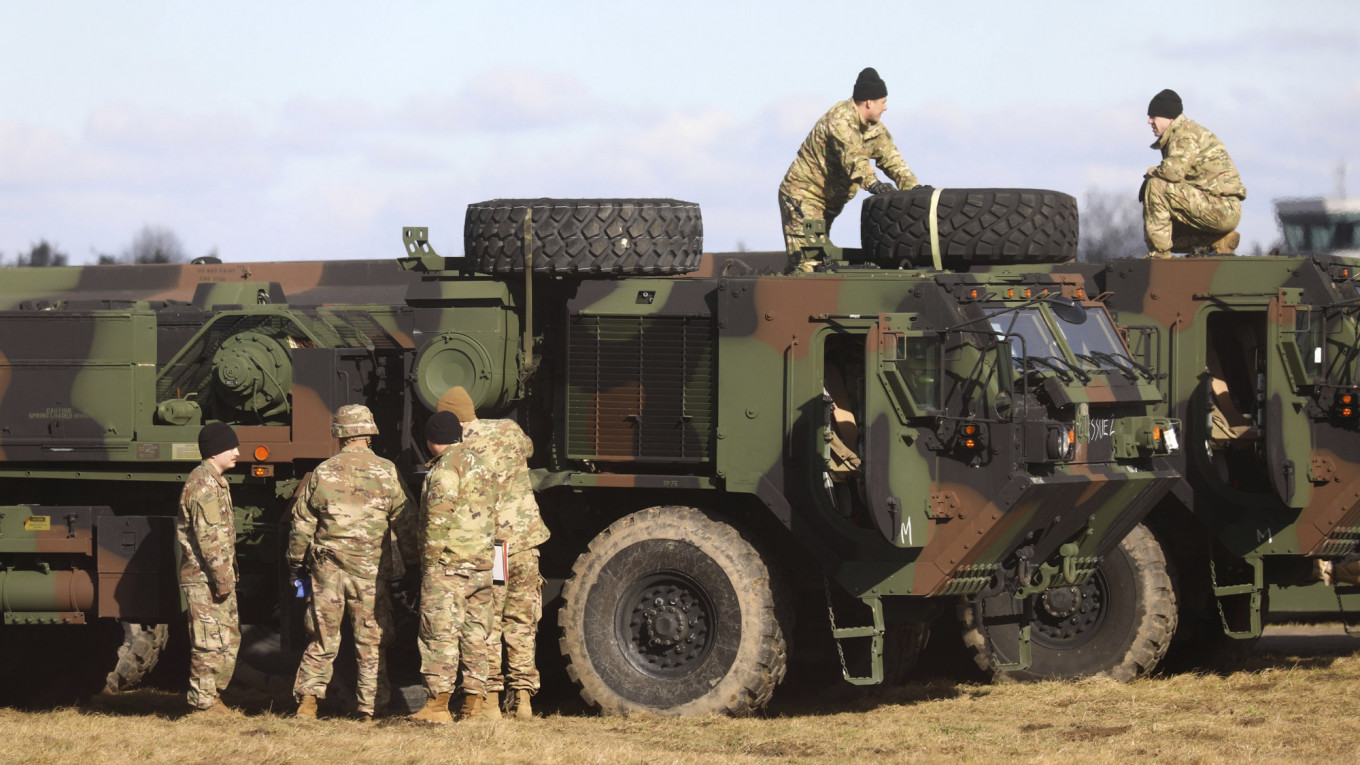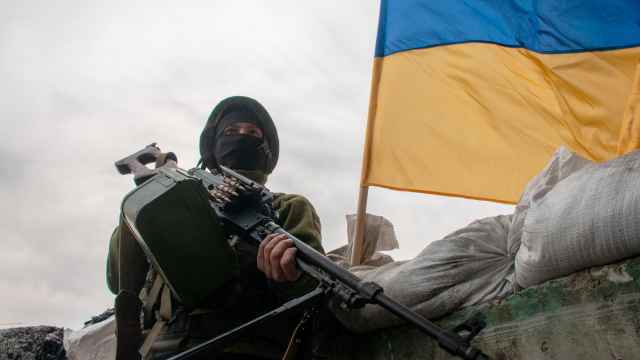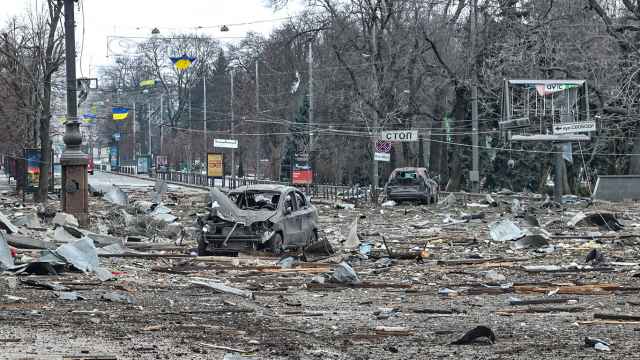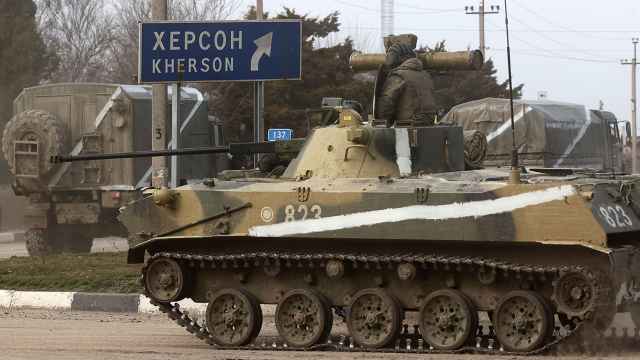Hundreds of U.S. paratroopers landed at a Polish airport near the Ukrainian border on Wednesday as part of a deployment of several thousand to bolster NATO's eastern flank amid tensions with Russia.
AFP reporters saw soldiers disembarking from two Boeing C-17 military transport planes and boarding buses at Rzeszow Airport, located around 100 kilometers (62 miles) from the border with Ukraine.
Soldiers were also transported on Black Hawk and Chinook helicopters to and from the airport.
Some of the soldiers brought working dogs on leads.
Armored cars, military trucks, containers and dozens more soldiers were seen at a makeshift camp set up in and around a glass-covered conference center opposite the airport terminal.
"We don't know yet," a sergeant manning a checkpoint into the camp, who declined to be named, told AFP when asked how long they might stay.
Soldiers from the 82nd Airborne Division based in North Carolina have been landing at the airport in the village of Jasionka since February 5.
The airport also functions as a regular civilian terminal for the Podkarpackie region, with Ryanair flights to London and Manchester on Wednesday.
The United States has said it is planning to temporarily deploy around 4,700 additional soldiers to EU and NATO member Poland in response to Russia's troop build-up around Ukraine.
The arrivals will bring the U.S. military presence in Poland to around 10,000 troops on rotation.
The 82nd Airborne Division's commanding general Chris Donahue, the last U.S. soldier to leave Afghanistan, said at the start of the mission that the troops would "defend any portion of NATO".
"This deployment is a prudent measure to ensure collectively the prevention of any war aims. It is defensive in nature," Donahue told reporters.
A Message from The Moscow Times:
Dear readers,
We are facing unprecedented challenges. Russia's Prosecutor General's Office has designated The Moscow Times as an "undesirable" organization, criminalizing our work and putting our staff at risk of prosecution. This follows our earlier unjust labeling as a "foreign agent."
These actions are direct attempts to silence independent journalism in Russia. The authorities claim our work "discredits the decisions of the Russian leadership." We see things differently: we strive to provide accurate, unbiased reporting on Russia.
We, the journalists of The Moscow Times, refuse to be silenced. But to continue our work, we need your help.
Your support, no matter how small, makes a world of difference. If you can, please support us monthly starting from just $2. It's quick to set up, and every contribution makes a significant impact.
By supporting The Moscow Times, you're defending open, independent journalism in the face of repression. Thank you for standing with us.
Remind me later.






